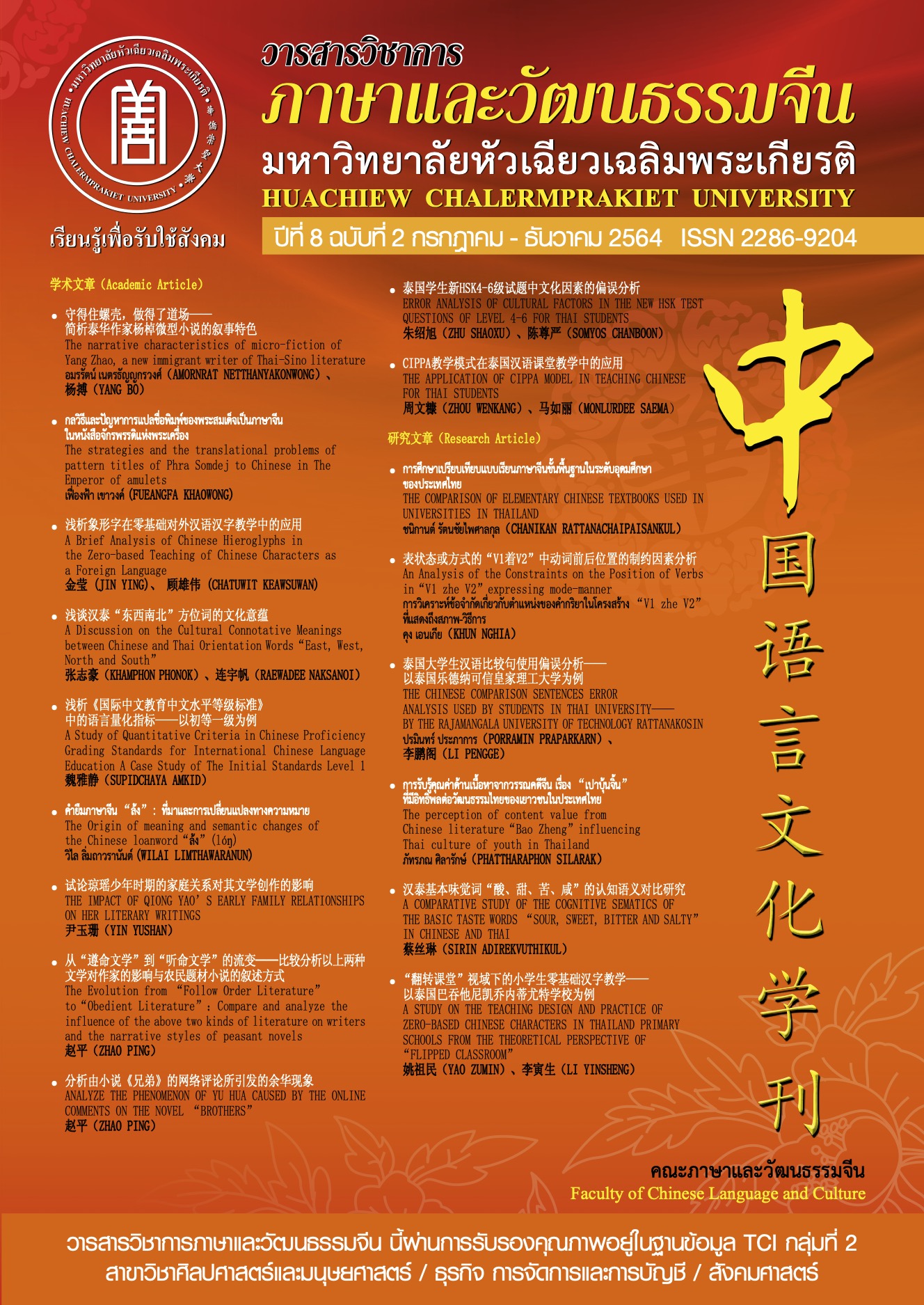A Discussion on the Cultural Connotative Meanings between Chinese and Thai Orientation Words “East, West, North and South”
Keywords:
East, west, north, south, cultural connotative meanings, traditional cultureAbstract
The orientation words have a close connection with people’s daily life. The words “east, west, north and south” in Chinese and Thai, in many instances, are not just used to express directions, and they also have their own distinctive cultural connotations which reflect on the expression of respect and humbleness, like and dislike that the orientation words present in language using. Through the discussion on the cultural connotative meanings between Chinese and Thai orientation Words “East, West, North and South”, this paper aims to analyze the commonness and differences between them, which will be helpful to the improvement of teaching in CAFL (Chinese as a foreign language) and cultural exchanges between China and Thailand.
References
日月洲.佛国行. [M].北京:中国工人出版社, 2007
田禾,周方冶.列国志—泰国. [M].北京:社会科学文献出版社, 2005
吉野裕子.阴阳五行与日本民俗. [M].上海:学林出版社, 1989
刘晓梅.成语中方位词的文化隐喻功能. [J].安庆师范学院学报(社会科学版),2011.30 (2)
李宗利,刘效群.从“东南西北”方位词看中西文化的差异. [J], 徐州建筑职业技术学院学报,2005.5 (4)
陈秋兰.《诗经》中“东西南北”的人文意蕴.[J].陕西师范大学继续教育学报, 2006.23
张雪珠.汉英中“东西南北”的文化蕴涵比较. [J].湖南科技学院学报, 2005.26(9)
钱兴奇等注译.礼记. [M].长沙:岳麓书社, 2001
郭锡良等.古代汉语. [M].北京:商务印书馆, 2000
道吉尔.汉语方位词的文化涵义探析. [J].内蒙古社会科学(汉文版),2001.22(5)
蒋冰清,彭芬芳.汉语方位词东南西北的文化意义解读. [J].湖南社会科学, 2008.(3)
彭林注译.仪礼. [M].长沙:岳麓书社, 2001
程裕祯.中国文化要略. [M].北京:外语教学与研究出版社, 1988
魏建震.先秦社祀研究. [M].北京:人民出版社, 2008
Khanika Kamdee.(2017).6 disa to the Management of Chaisri Temple, According to Phrakrubunchayakorn.Journal of Language, Religion and Culture.6(2) p. 102-118.
Prayun Uluchada.(2003).7 khwamchua khōng Thai (Khati Sayam). Bangkok: Muang Boran.
Downloads
Published
How to Cite
Issue
Section
License
บทความที่ได้รับการตีพิมพ์เป็นลิขสิทธิ์ของวารสารภาษาและวัฒนธรรมจีน มหาวิทยาลัยหัวเฉียวเฉลิมพระเกียรติ
บทความใน “วารสารวิชาการภาษาและวัฒนธรรมจีน” เป็นทรรศนะของผู้เขียนโดยเฉพาะ กองบรรณาธิการไม่มีส่วนในความคิดเห็นในข้อเขียนเหล่านั้น




